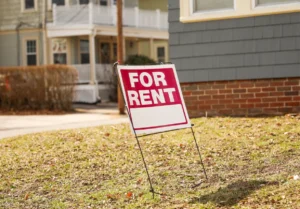No one likes a bad review

The Consumer Review Fairness Act and Its Marketplace Impact
Recent reporting shows issues with lease clauses banning tenants from leaving negative reviews, sometimes called non-disparagement clauses in leases, so see what the consumer review fairness act says about this.
Caveat emptor is a Latin phrase that translates to “let the buyer beware.” It’s been used for hundreds of years and puts the burden of researching the quality of products and services on the buyer in a transaction.
Because of that assertion, P.T. Barnum is often credited with the phrase “There’s a sucker born every minute” which implies there is a continuous supply of gullible individuals just waiting to be fleeced. (By the way, there’s no actual proof P.T ever actually said that).
For centuries, the only way for a consumer to voice pleasure or disdain about their experience in the marketplace was by word-of-mouth. Over the past two decades, the rise of online shopping, subscription services, and digital products has caused an explosion in the marketplace.
It also gave the consumer the ability to publish or broadcast online reviews of nearly every business and product, both good and bad, around the world instantly.
No one likes a bad review, and some businesses sought to limit what their customers could post online. Some companies put contract provisions in place, including in their online terms and conditions, that allowed them to sue or penalize consumers for posting negative reviews.
As a result, the Consumer Review Fairness Act (CRFA) was signed into law in 2016 to protect people’s ability to share their honest opinions about a business’s products, services, or conduct, in any forum, including social media.
Need Legal Help?
Chat with a real estate lawyer near you. It’s only $5 for a 1-week trial. Ask unlimited questions.
What the Consumer Review Fairness Act Says
The CRFA makes it illegal for companies to include standardized provisions that threaten or penalize people for posting honest online reviews, including negative reviews. It also covers social media posts, uploaded photos, videos, etc. and consumer evaluations of a company’s customer service (the law doesn’t apply to employment contracts or agreements with independent contractors).
A company or business can prohibit or remove a post or review that contains confidential or private information – for example, a person’s financial, medical, or personal information or a company’s trade secrets.
A post or review that is libelous, harassing, abusive, obscene, vulgar, sexually explicit, or is inappropriate with respect to race, gender, sexuality, ethnicity, or another intrinsic characteristic can also be prohibited or removed.
If the post is unrelated to the company’s products or services or is clearly false or misleading, it may be prohibited or removed. However, it’s unlikely that a consumer’s assessment or opinion with which the company or business disagree meets the “clearly false or misleading” standard. The CRFA does not affect a business’s right to pursue civil actions for defamation, libel, or slander.
The Federal Trade Commission and state attorneys general have the authority to enforce the CRFA. A violation of the CRFA is considered as an unfair or deceptive act or practice. This means that your company could be subject to financial penalties and other sanctions, such as federal court orders.
Every company or business needs to evaluate its compliance with the CRFA and review all the forms or standardized contracts used in the business, including online terms and conditions. Any provision that restricts people from sharing their honest reviews, penalizes those who do, or claims copyright over peoples’ reviews must be removed.
It’s always a good practice to monitor your company’s reviews. If a post is clearly false or misleading, or violates the standards of your industry or community, take steps to have it removed. Otherwise, let people speak honestly about your products and their experience with your company.
If you strive to make the best product, provide the best customer service and work hard to earn positive reviews, you’ll get the five-star rating every time.
Source: Rental Housing Journal













 Accessibility
Accessibility